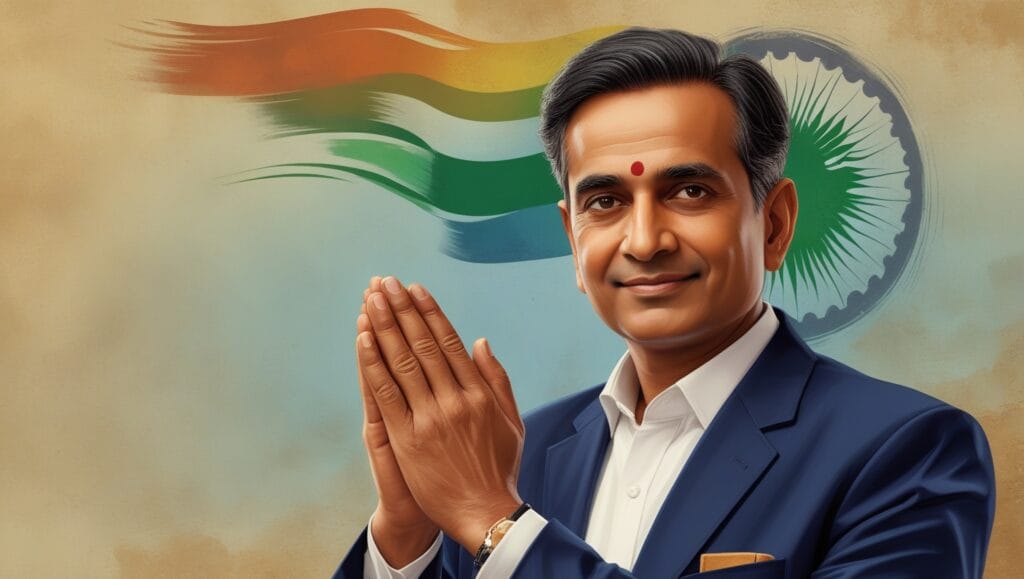Former IAS officer takes charge under revamped selection process; set to oversee critical state elections till 2029
Introduction
Gyanesh Kumar, a seasoned bureaucrat and 1988-batch Kerala-cadre IAS officer, was appointed as India’s 26th Chief Election Commissioner (CEC) on February 17, 2025. His appointment marks the first under a contentious new law that reshapes the selection process for election commissioners, replacing the Chief Justice of India with the Union Home Minister on the selection panel. This move has sparked debates over institutional independence, even as Kumar prepares to oversee high-stakes state elections in Bihar, Kerala, Tamil Nadu, and West Bengal.

Gyanesh Kumar’s Distinguished Career
- Early Life and Education
Born in Agra, Uttar Pradesh, Kumar holds a B.Tech in Civil Engineering from IIT Kanpur. He further studied Business Finance at ICFAI, India, and Environmental Economics at Harvard University, USA. - Key Roles in Kerala and Central Government
- Served in Kerala as District Collector of Ernakulam, Municipal Commissioner of Cochin, and Managing Director of the Kerala State Cooperative Bank.
- At the Centre, he held pivotal positions, including Joint Secretary in the Ministry of Defence (2007–2012), Additional Secretary in the Home Ministry, and Secretary in the Ministry of Parliamentary Affairs and Cooperation.
- Played a critical role in implementing post-Article 370 decisions in Jammu & Kashmir and establishing the Shri Ram Janmabhoomi Teerth Kshetra Trust after the Ayodhya verdict.
- Rescue Operations and Policy Reforms
In 2014, he led efforts to rescue Indian nurses held captive by ISIS in Iraq during his tenure as Kerala’s Resident Commissioner in Delhi. As Cooperation Secretary, he oversaw the enactment of the MSCS (Amendment) Act, 2023, and launched the CRCS-Sahara refund portal for depositors.
Controversial Appointment Process
Kumar’s selection followed a meeting of a three-member panel comprising PM Narendra Modi, Home Minister Amit Shah, and Leader of Opposition Rahul Gandhi. However, the Congress criticized the haste, arguing the appointment should have awaited a Supreme Court hearing on February 19 challenging the new selection law. The revised process, enacted in 2023, excludes the Chief Justice from the panel, raising concerns about political influence over the Election Commission.
Challenges Ahead: Major Elections on the Horizon
Kumar’s tenure, ending on January 26, 2029, will test his ability to uphold electoral integrity amid heightened scrutiny. Key responsibilities include:
- 2025 Bihar Assembly Elections: A litmus test for his leadership.
- 2026 State Polls: Kerala, Tamil Nadu, West Bengal, and Puducherry—regions with complex political dynamics.
- Technological Reforms: Leveraging biometric authentication and AI to counter fake narratives, as emphasized by his predecessor Rajiv Kumar.
Political Reactions and Legacy
While the BJP hailed Kumar’s administrative experience, Congress leaders like Abhishek Singhvi warned that sidelining the CJI undermines the EC’s credibility. Kumar’s close association with Home Minister Amit Shah during critical policy decisions, including Article 370’s revocation, adds to the polarized discourse.
Conclusion
Gyanesh Kumar steps into a role fraught with both opportunity and controversy. His technical expertise and bureaucratic acumen position him to navigate India’s evolving electoral landscape. Yet, the shadow of the new selection law looms large, demanding transparent leadership to restore public trust. As the nation gears up for pivotal elections, all eyes will be on Kumar’s ability to balance political pressures with constitutional dut.